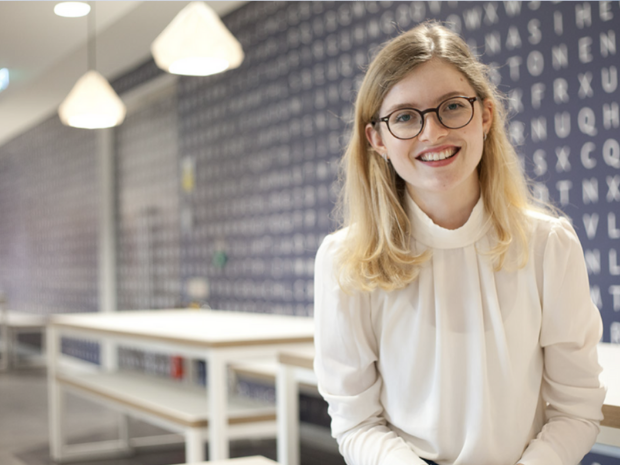
Meet our July Alum of the Month, Camilla Naschert. Camilla has combined her passion for news and storytelling with her management degree to forge a career in financial journalism, now with S&P Global Market Intelligence in London. "I want to improve transparency around the actions of companies and governments, and shine a spotlight on issues that need wider attention,” she says.
Tell us about your current role and key responsibilities?
As renewable energy reporter at S&P Global Market Intelligence I write news and analysis on Europe's power sector, in particular about companies' activities in renewables. The scope is broad, I write about financing, technology and policy. My job is to come up with ideas for articles, interview experts on the issues I am writing about and bring in relevant data visualisation to support the story.
What do you consider to be the greatest challenges of your role?
Generally I find the job extremely interesting and rewarding, and there is no shortage of news. The sector is fast-moving and closely tied to policy, which means keeping tabs on legislation is just as important as following company strategies. Seeing technological advancements bringing down the cost of green power is very encouraging.
But one thing I notice all the time is the lack of gender diversity in the industry, which makes it challenging to include as many female voices in my stories as I would like. Conferences still often feature all-male panels. I strongly believe that elevating women's views in the financial press can only be a good thing. It broadens people's perception of what a leader looks and sounds like and hopefully inspires more women to enter the field.
What advice would you give to a female student who wants to start a career in journalism?
Your strengths and perspectives are valuable. Start writing and get used to putting yourself out there, whether that’s on your blog or in the student newspaper. Avoid working for free. Be open-minded when you’re looking for your first job - the name of the publication and even the topics you report on matter less than the skills you can learn there. Find mentors and a support network at work. Volunteer for tasks that may scare you, prepare well and then just do them - it’s the best way to grow.
How did your time at LSE’s Department of Management influence your career?
LSE of course sets out to 'know the causes of things', to look at issues critically and listen to different views. In my own career, I want to improve transparency around the actions of companies and governments, and shine a spotlight on issues that need wider attention. I hope to make readers think and help them make informed decisions.
I believe the three years I spent at LSE have set me up well for achieving that. They gave me a great education and the confidence that comes with that, the ability to push through challenges and wonderful supportive friends.
How did you transition into journalism after studying BSc Management?
I was already set on becoming a journalist when I applied to LSE, writing for a magazine in my home town alongside high school. During my time at LSE I wrote for the Beaver student newspaper, which allowed me to explore the subjects that speak to me and improve my writing. In the summers I interned at different publications. After graduating, I did my master's degree in Financial Journalism, then interned at Bloomberg News before starting my first job at Argus. There are a million ways into journalism. All you really need is curiosity, persistence and the ability to tell a story.
This year you volunteered to speak to current management students about your career. What encouraged you to volunteer and what was your experience like?
I was a student not so long ago, and I remember how much it helped me at the time to see alumni talk about the options we had, especially in fields that might stray away from the usual trajectory. I still look for inspiration and mentorship from those ahead of me, I don’t know if that process ever ends. So being back at LSE and able to answer questions and encourage students to follow their interests was very rewarding.
Share a sentence on your Covid-19 experience. Has it made you rethink your career goals or what is important to you?
On the whole I feel very lucky, I’ve been able to work effectively from home and S&P have really been good at supporting us throughout the process. I do believe there will be lasting change in the way many people work and travel. The crisis has reaffirmed my goals, it is highlighting the value and public service of quality journalism. I want to contribute to that.